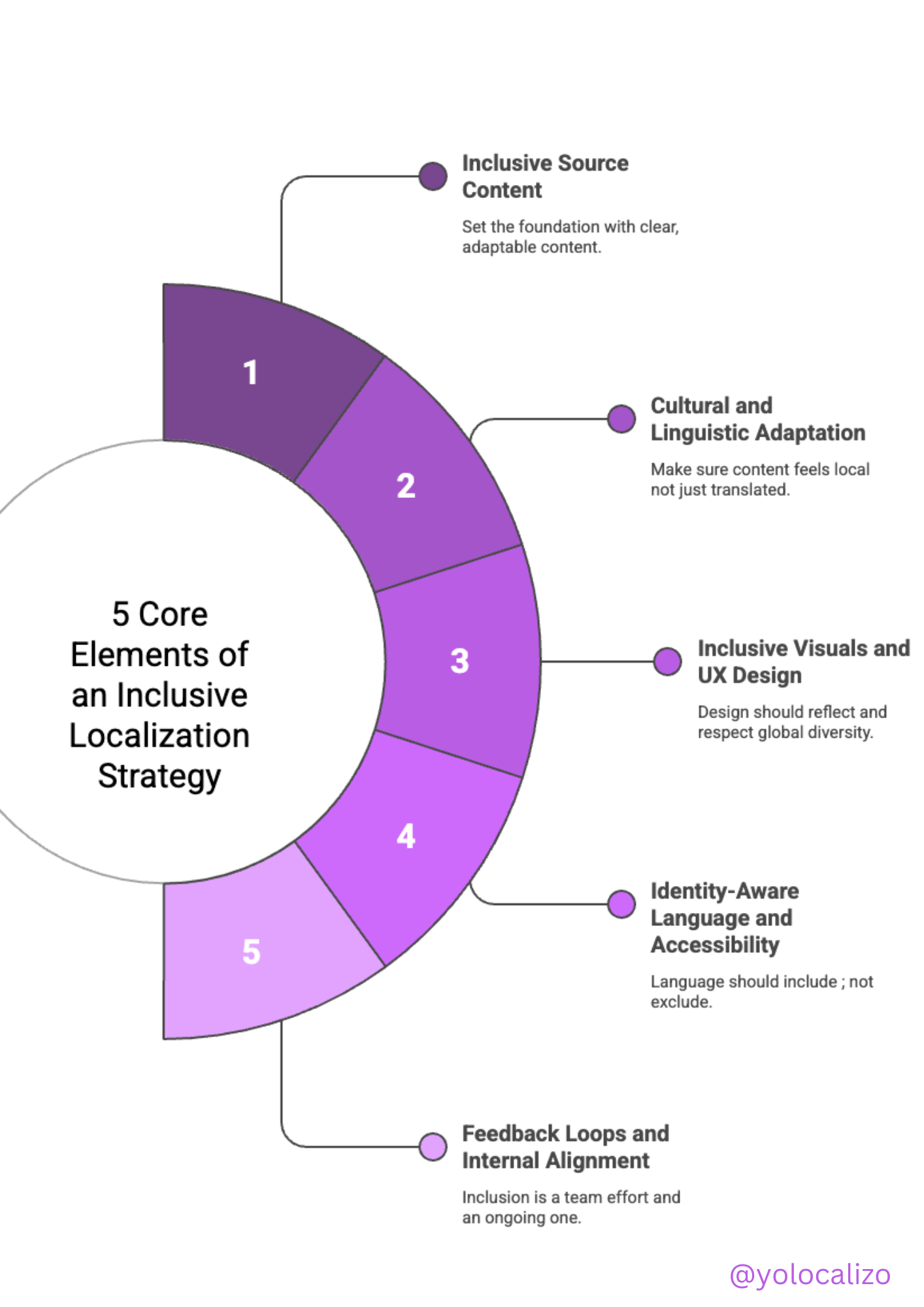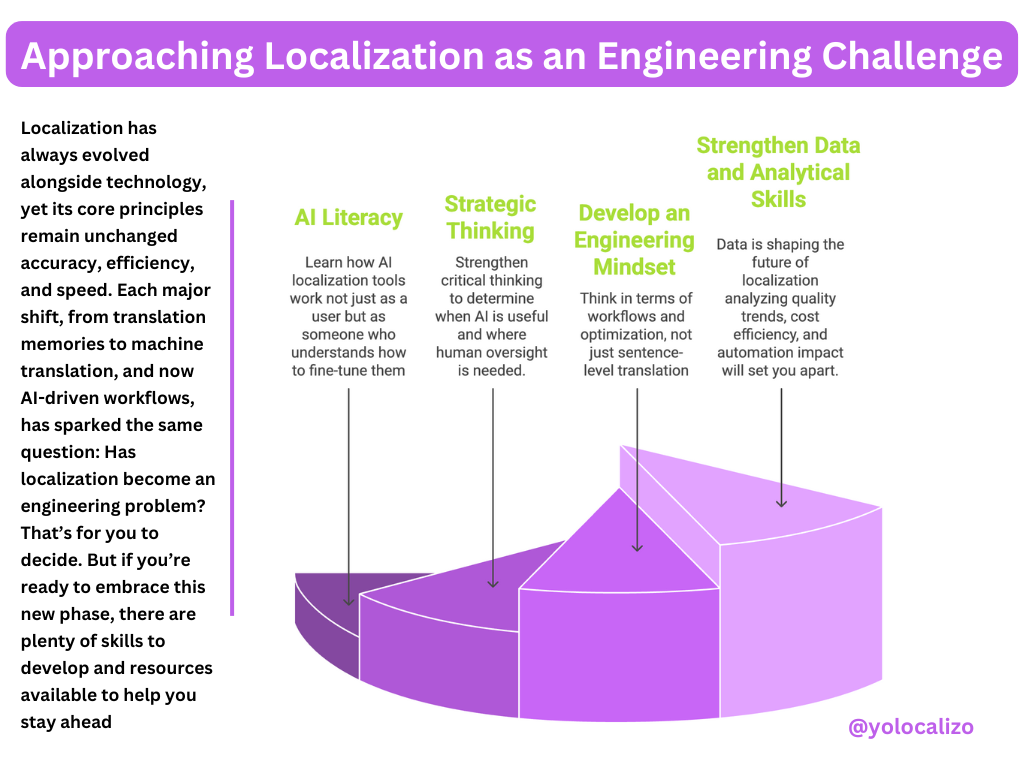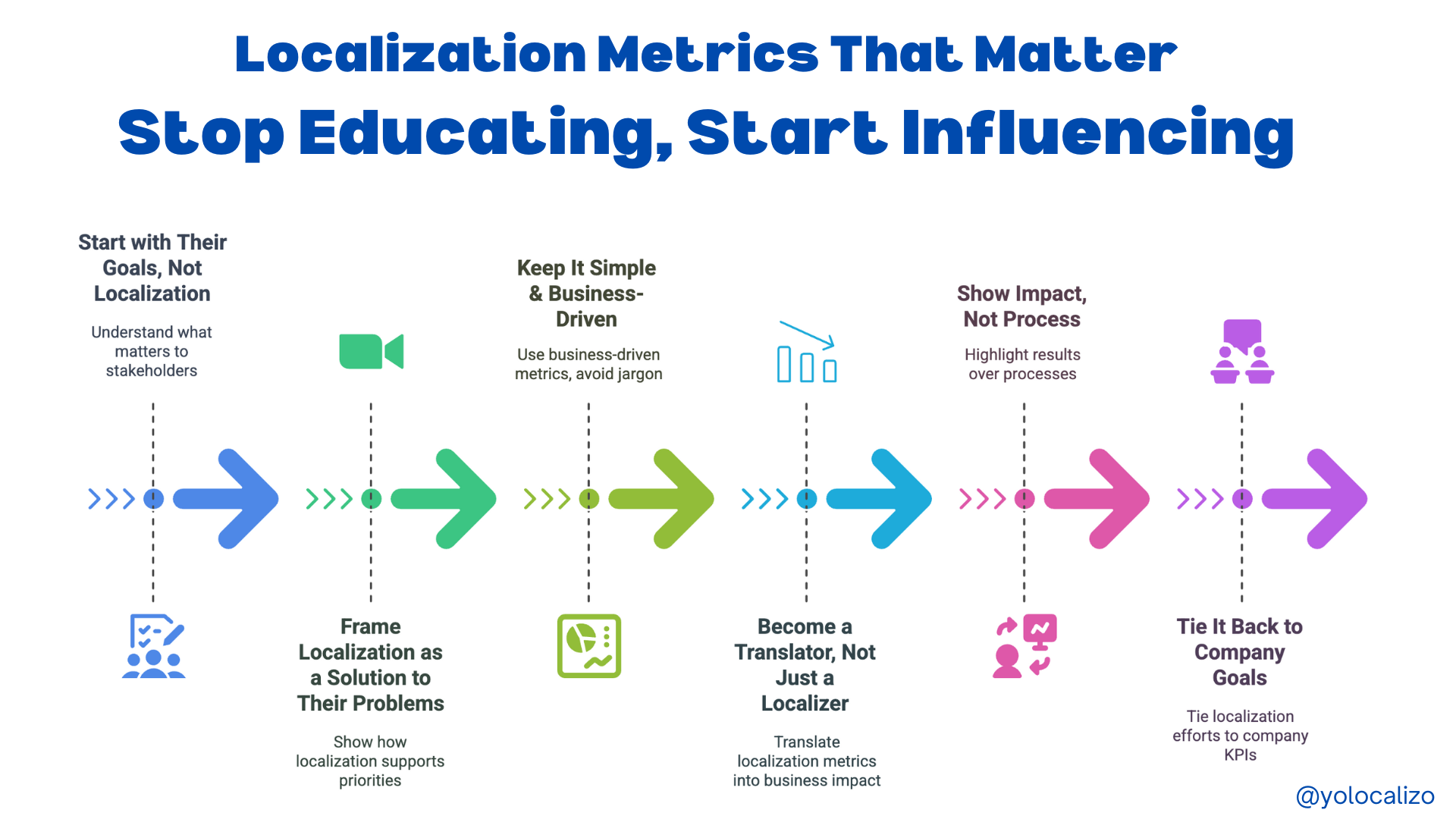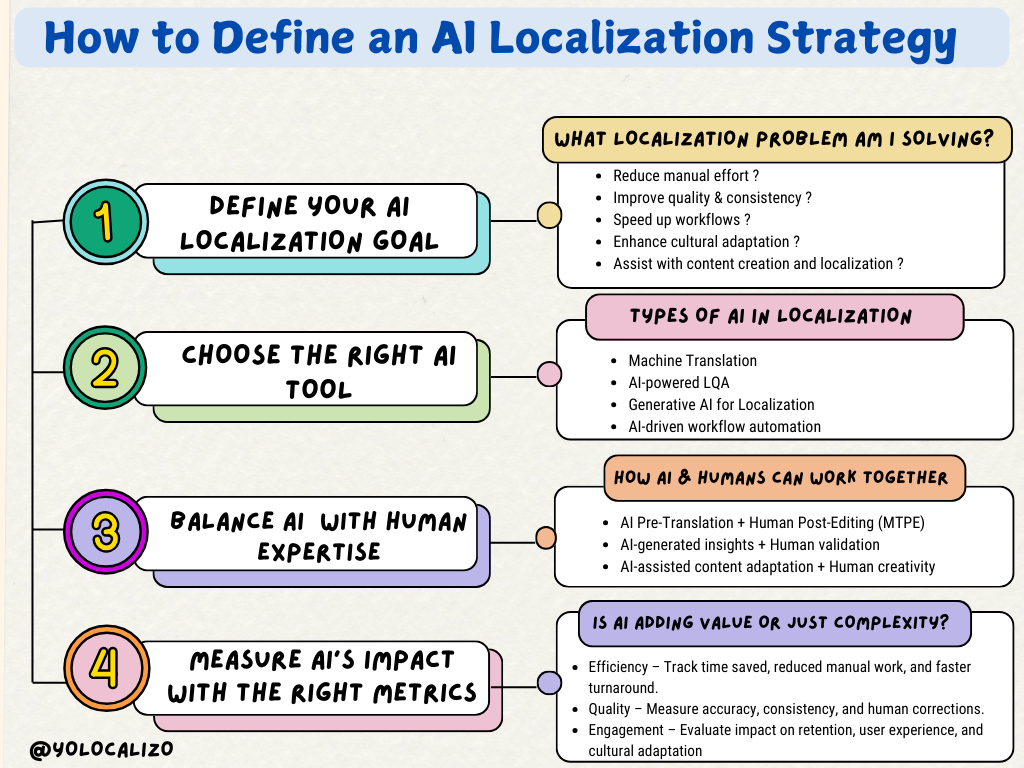Globalization Project Managers: tasks they do beyond just moving files for translation
Sometimes, when you are very involved in a topic, it might be challenging to explain it to someone unfamiliar. If that topic also has to do with localization, in many situations, the challenge is twofold since our industry is a mix of several disciplines such as translation, marketing, internationalization tasks, cultural adaptation of content, and international customer support responsibilities...
Localization tasks touch upon many disciplines when it comes to software development, and the role of the Project Manager on the developers' side also encompasses many disciplines and involves many relationships with different stakeholders.
Last week I had the opportunity to explain to someone who is not super familiar with the role of the Globalization / Localization Project Manager what this role really means ... it was a very useful encounter, and as they say, when you explain something to someone that is new to them, it is an excellent opportunity to reflect on what you explain, how you explain it and how well you know what you explain!
That's what happened to me last month, one afternoon when I went down to take a swim in the community pool, and there I bumped into a neighbor. The topic of what I do for a living came up. Explaining the job of a Localization industry professional can be done in many different ways. It's not a matter of going into all the details of what we do while we're taking a dip in the pool :) however, I provided some insights into what a Project Manager does.
This neighbor works as a project manager in a hospital, so we had some jargon in common, and I could give him some details. It's not like my father, who has spent 25 years trying to understand what I do and trying to grasp how it's possible that I'm not required to clock in! Someone who has worked in a factory with a strict 6 AM to 2 PM schedule all his life is amazed by my flexible hours. Anyways, back to this topic, this conversation made me think about the responsibilities in the day-to-day of a Globalization Project Manager (GPM) and also made me think about the areas and responsibilities of this role that are not usually known.
Those of you who work in the localization industry already know that a GPM is like a Swiss Army knife; she or he does several tasks, and they are very varied! But in my experience, I have observed that there are 2 areas of the tasks GPMs do that usually go unnoticed.
This week's post is about this topic, which is what tasks make a GPM that a priori is not obvious.
There are certain tasks in the GPM position that, even if you are not very familiar with what they do, they are usually easily understood when explaining the role; it is assumed that a Project Manager needs organizational skills and will execute tasks related to coordinating LSPs/freelancers, budget tracking, linguistic quality control, etc etc, let's say that these are the "obvious" tasks.
But 2 other big areas are not so obvious and that a GPM must fulfill .. and these are
A GPM is a Global Growth Evangelist
If you are in a company seriously considering growing globally, you must involve a Globalization PM in your expansion discussion plans.
Sometimes, this comes as a surprise to many internal stakeholders since the role of the Globalization PM is seen as a "file-pusher," someone who takes files in English and looks for translators who apply their linguistic knowledge to translate them.
And yes, a GPM does that, but it's only one part of their work, perhaps the most visible and well-known part. But they are not just file-pushers, far from it.
GPMs influence projects, seeking growth in new markets and opportunities for expansion. Sometimes, it is thought that an expansion plan should be directed by marketing, sales, and the C-suite, and yes, all those teams are important when it comes to growing internationally, but a GPM will bring a unique perspective that should not be underestimated.
Global growth is hard, and many questions must be answered; it combines localization strategy and market penetration. One of the first questions that a company faces when it starts working on its expansion plan is, which markets do we want to enter. Still, this question is only the tip of the iceberg since once you are clear about the country/region you want to explore, many more decisions will be made. Decisions in which it is convenient to involve your GPM. For example
What strategy are we going to follow to differentiate ourselves from our competitors?
How do we evaluate Localization success in, let's say, 1-3-5 years?
Which metrics are we going to monitor?
What variables will we take into account to create the globalization budget?
What Localization Strategy will we follow to use the globalization budget efficiently (inhouse activities vs. outsourcing activities)?
How will we reduce the time-to-market of our app/game/digital product?
How will we ensure our product is locally relevant, runs smoothly, and is ready to scale globally?
How are we going to ensure our app code is ready to function in different markets (known as internationalization (i18n) within our loc nerd community)
How will we prepare the product to ensure it is culturally relevant and adapted to the local needs?
Global growth at scale can't happen without the GPM's input, and the GPM plays a fundamental role in connecting key business metrics that matter and the deliverables of the localization team.
A GPM is a Global Framework Champion
Growing globally is not feasible without a framework to support such growth.
Especially if we take into account that there are companies that launch new code several times a day.
Source: ZDnet
As you can imagine, in order to handle new code that in many cases ends up being new features/new content, it is necessary to have a Globalization framework that can withstand such a pace of development.
And this is where the Globalization Project Managers play a crucial role.
They act as the link between developers and end-users. And how does a GPM do that?
Actually is a complex endeavor, and this what needs to be done
The GPM will focus on facilitating the implementation of the technological frameworks, a high-quality TMS to orchestrate the development setup
GPM will implement a solution to connect source code repositories to the CMS to allow translators to start their localization activities
GPMs will focus on finding a solution to minimize administrative work and manual/repetitive tasks by exploring MT engines and they will assess how to connect them to your TMS/CMS
A GPM enhance automation and leverage efficiencies by allowing Translation Memories to be automatically shared among all projects and team members
A GPM will also work to implement a source content versioning system. With all the frequent updates the software receives today one of the most important tasks the GPM needs to give feedback on is how the version control of the files will be handled. This is a critical step as it will allow for quick detection of updates so that translators can start working on the localized versions without problems.
A GPM will create localized tests using pseudo location techniques to bring LQA activities to the software design phase instead of the pre-launch phase.
A Globalization Project Manager is critical to ensure that the delivery of localized files occurs immediately.
He or she will ensure a streamlined, frictionless process between the content creation phase and the content localization phase is in place. And this is done with the understanding that having the content localized as soon as possible is the single most valuable measure for internal stakeholders.
Our stakeholders don't really care about % Translation error rate
Our stakeholders don't really care about Total deliveries that are on time or early ÷ Total deliveries
Our stakeholders don't really care $ Translation cost per word
(more about which metrics they care HERE)
Our customers are concerned about speed.
For our shareholders, speed is everything!
That's how they value our contribution.
Good quality delivery is taken for granted.
They expect our translators to make very few mistakes.
All this is taken for granted.
The yardstick for internal stakeholders applying to a GPM is, when will I have my content localized?
And to give them an answer they like, the GPM must pay attention to this phase of championing a solid Globalization framework. The more automated the localization workflow and the less human involvement, the faster our deliveries and the happier our stakeholders will be!
In conclusion
Very often, most companies do not recognize that a Globalization Project Manager is a role to be reckoned with to build a truly global product.
A GPM connects the dots, and the different internal teams and stakeholders help define the company's global reach strategy, the metrics to be monitored, the internationalization requirements, and the culturalization guidelines to be considered.
Very often, that effort goes unnoticed.
It should not be like that, as GPMs are a great ally to partner with.
A Globalization Project Manager is a catalyst for a company's global growth!
I would love to hear your experience about what other tasks a GPM does that are not usually known.
So leave your comments below!














Localizability has always been a challenge small issues in source content often lead to big problems later in translation. In this post, I explore how AI is giving localization teams a powerful new way to improve source quality, reduce friction, and create better content for every market right from the start.